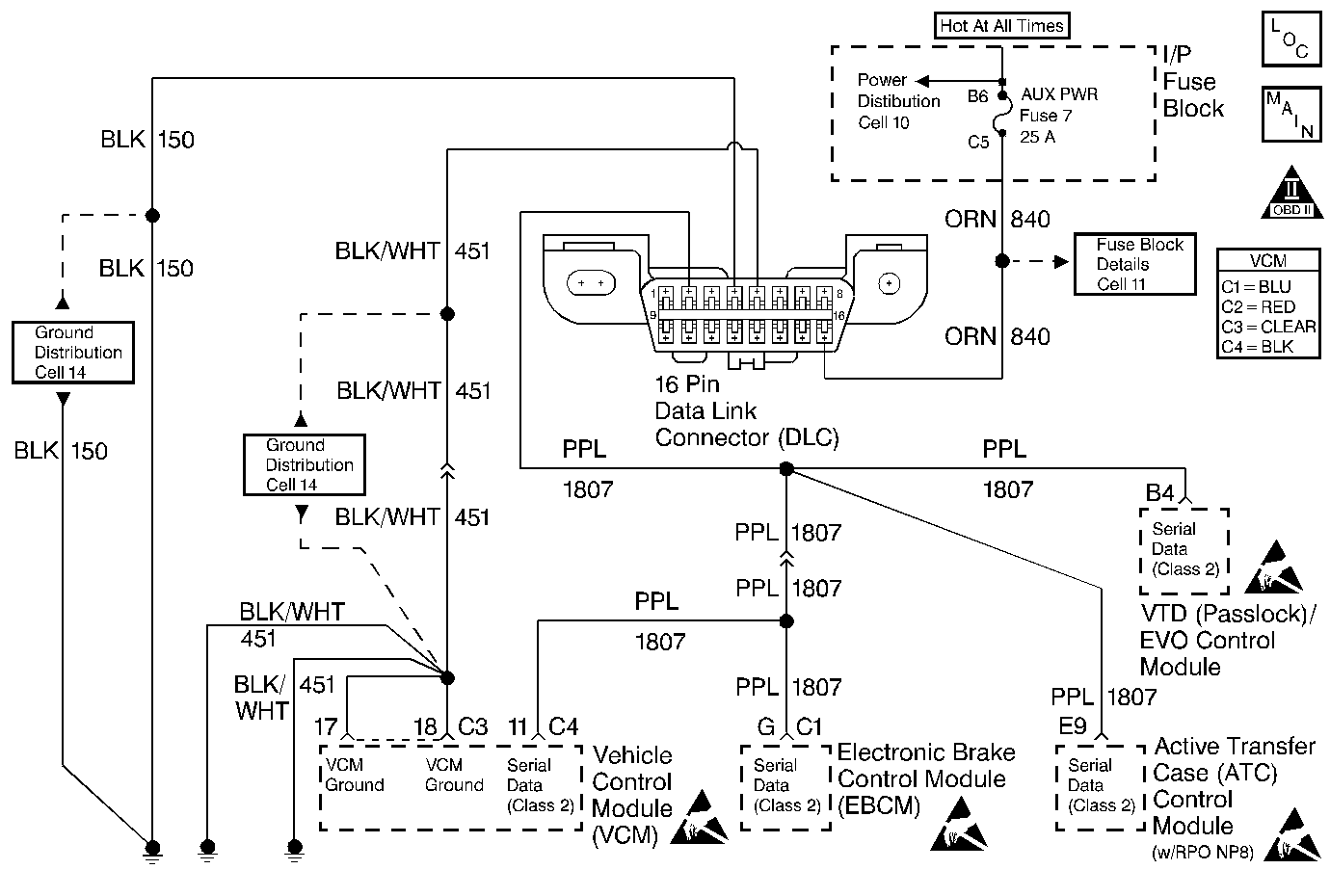
Circuit Description
This diagnostic will detect a loss of serial communication from the electronic brake control module (EBCM) to the control module. This serial communication is essential in order to distinguish misfire from a rough road condition.
Conditions for Running the DTC
| • | The vehicle speed is more than 1 mph (2 km/h) |
| • | The engine speed is less than 5,800 RPM |
| • | The engine load is less than 89% |
| • | Engine misfire is detected |
Conditions for Setting the DTC
A serial data malfunction is preventing the VCM from receiving rough road detection data.
Action Taken When the DTC Sets
| • | The control module stores the DTC in history after the first failure but will not illuminate the malfunction indicator lamp (MIL). |
| • | The control module records the operating conditions at the time the diagnostic fails. The control module stores the failure information in the scan tools Freeze Frame/Failure Records. |
Conditions for Clearing the MIL/DTC
| • | A history DTC will clear if no fault conditions have been detected for 40 warm-up cycles. |
| • | A warm-up cycle occurs when the coolant temperature has risen 22°C (40°F) from the startup coolant temperature and the engine coolant temperature exceeds 70°C (160°F) during the same ignition cycle. |
| • | Use the scan tool Clear Information function. |
Diagnostic Aids
Check for the following conditions:
An intermittent may be caused by any of the following conditions:
| • | A poor connection |
| • | Rubbed through wire insulation |
| • | A broken wire inside the insulation |
Thoroughly check any circuitry that is suspected of causing the intermittent complaint. Refer to Intermittents and Poor Connections Diagnosis in Wiring Systems.
If a repair is necessary, refer to Wiring Repairs or Connector Repairs in Wiring Systems.
Test Description
Number(s) below refer to the step number(s) on the Diagnostic Table.
Step | Action | Value(s) | Yes | No |
|---|---|---|---|---|
1 |
Important: Before clearing the DTCs, use the scan tool Capture Info to save the Freeze Frame and Fialure Records for reference. The control module's data is deleted once the Clear Info function is used. Did you perform the Powertrain On-Board Diagnostic (OBD) System Check? | -- | ||
2 | Check for any U-Codes. Did you find any U-Codes? | -- | Go to the applicable DTC table | |
Was a problem found? | -- | Go to Diagnostic System Check - ABS in Antilock Brake System | ||
4 | Repair the circuit as necessary. Refer to Wiring Repairs in Wiring Systems. Is the action complete? | -- | -- | |
5 |
Does the scan tool indicate the diagnostic Passed? | -- | ||
6 | Does the scan tool display any additional undiagnosed DTCs? | -- | Go to the applicable DTC Table | System OK |
